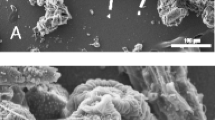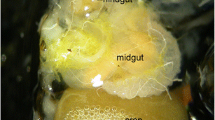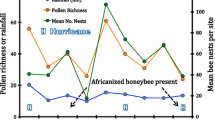Abstract
A method is described, based on the simultaneous turnover of both stable (18O) and radioactive isotopes (3H and 22Na), whereby the daily nectar and pollen intake of free-ranging marsupial honey possums (Tarsipes rostratus) may be estimated. The field metabolic rate is measured using doubly labelled water and nectar intake is estimated independently from the measured water and sodium fluxes. The method assumes that free-water intake is negligible (but may be accounted for if not the case), that virtually all dietary sodium is derived from nectar rather than from pollen, and that the animals are in energetic balance over the period of measurement. These assumptions have been tested and found to be robust, except during periods of heavy rain when significant intakes of free-water were recorded. Leaching experiments with pollen grains suggest that less than 10% of the sodium ingested by honey possums is derived from pollen and calculations thus assumed a 90%:10% split between nectar and pollen. Nectar intake averaged 5.9 ± 0.6 ml · day−1 and regressing nectar intake on daily change in body mass predicts an intake of approximately 7 ml · day−1 nectar to maintain balance for a 9 g honey possum. Estimates of pollen intake averaged 660 ± 156 mg · day−1 and a similar regression analysis of the data predicts that a daily intake of approximately 1 g pollen would be needed to maintain mass balance of honey possums. Estimated nectar and pollen intakes did not differ significantly between males and females, but nectar intake was higher in winter compared with dry periods of the year. The sugar content of nectar falls during winter, however, and the overall energy derived from nectar thus remains roughly constant. Estimates of pollen and nectar intake for individual animals were not significantly correlated, suggesting that honey possums forage selectively for these two food items.
Similar content being viewed by others
Author information
Authors and Affiliations
Additional information
Accepted: 19 August 1999
Rights and permissions
About this article
Cite this article
Bradshaw, S., Bradshaw, F. Field energetics and the estimation of pollen and nectar intake in the marsupial honey possum, Tarsipes rostratus, in heathland habitats of South-Western Australia. J Comp Physiol B 169, 569–580 (1999). https://doi.org/10.1007/s003600050257
Issue Date:
DOI: https://doi.org/10.1007/s003600050257




